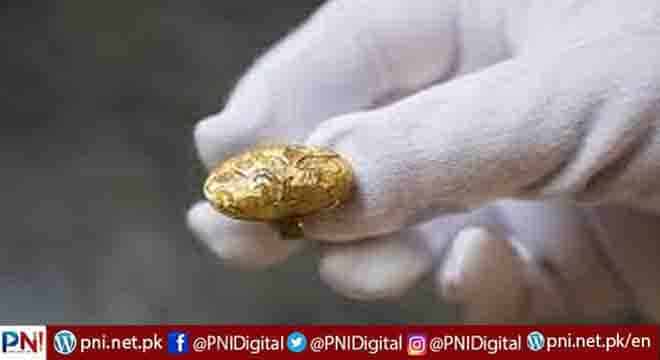Athens, May 20 (AFP/APP): Greece’s culture ministry on Friday said the Nobel Foundation in Sweden had returned an ancient gold ring stolen from the island of Rhodes during World War II.
The announcement came just days after a UNESCO body said Greece and Britain had agreed to hold formal talks on the Parthenon marbles currently on display at the British Museum in London.
The Mycenaean signet ring, marked with a pair of winged sphinxes, was formally returned at a ceremony in Stockholm on Thursday, the ministry said.
It had been found in Rhodes during a 1927 excavation at a Mycenaean necropolis by the Italian School of Archaeology, at a time when the island was under Italian control.
The ring was stolen during World War II from the local archaeological museum alongside other antiquities that have yet to be recovered, the ministry said in a statement.
It eventually surfaced in the United States, purchased by Hungarian Nobel prize-winning biophysicist Georg von Békésy, whose collection was acquired by the Nobel Foundation following his death in 1972.
The ring was kept at the Stockholm Museum of Mediterranean and Near Eastern Antiquities. Its identity was confirmed in 1975 by the museum’s then director, archaeologist and Mycenaean era expert Carl Gustaf Styrenius.
The ring will return to the Rhodes archaeological museum, the ministry said.
The Mycenaean era was the last phase of the Bronze Age in ancient Greece, spanning the period from approximately 1600 to 1100 BCE.
Earlier this week, the UNESCO committee on the return of cultural property (ICPRCP) said Britain in April had invited Greece to talks on the fate of the Parthenon Marbles.
Greece had accepted “and a meeting between the parties is about to be arranged in due course,” the UNESCO committee said.
The Parthenon temple was built in the 5th century BCE on the Acropolis to honour Athena, the patron goddess of Athens.
In the early 1800s, workmen stripped entire friezes from the monument on the orders of the British ambassador to the Ottoman Empire, Lord Elgin.
Elgin sold the marbles to the British government, which in 1817 passed them on to the British Museum where they remain one of its most prized exhibits.
Athens says the sculptures were stolen.
Follow the PNI Facebook page for the latest news and updates.









